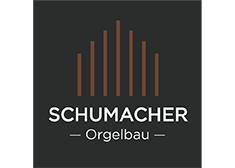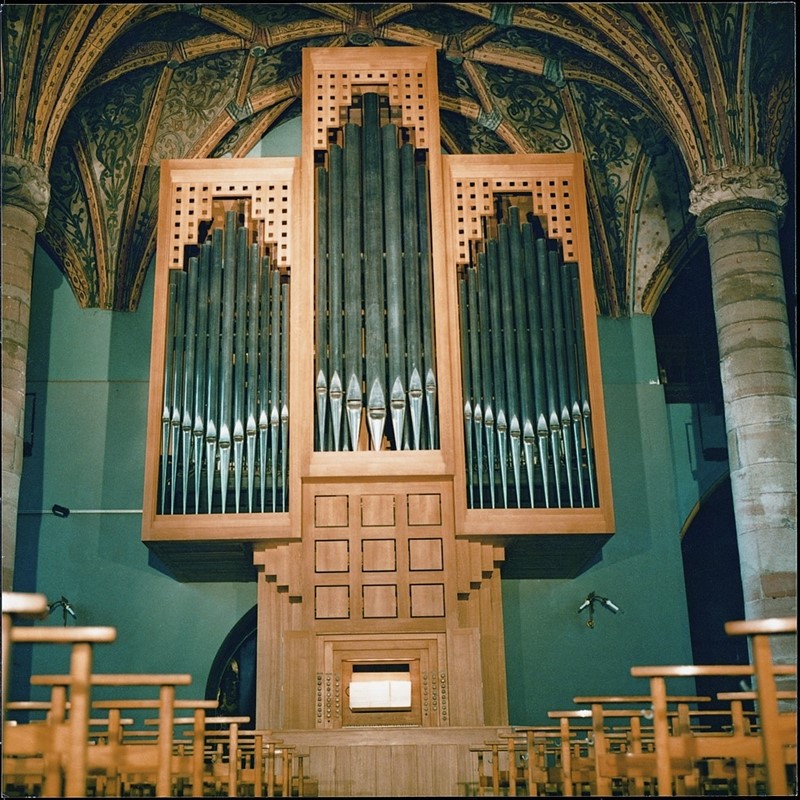Bastogne (B) | Saint-Peter
The new organ of Bastogne replaced the one destroyed during the Second World War which had been built by François Loret in 1867. Professor Hubert Schoonbroodt, technical advisor, describes the organ as follows:... The organ of Bastogne is of the French classical style by virtue of its Great Organ and positive, romantic by virtue of its Swell connected to the other manuals and to the pedal, is symphonic by virtue of the richness of its colors and the tonal dynamics. ... Being classic and romantic at the same time, it is not, however a neoclassical instrument even though it is composed of the three manuals which are indispensable for that type of organ ... It enables one to play a very large range of organ literature ... It is a contemporary organ born from a desire, which can be seen as post modern, to be opened to all possible aesthetic impulses which neither fears retrospective nor the tried and true traditional handcrafting techniques ... This recombines to create a new and unique deep emotional universe, a complex but original work of art to the benefit of a contemporary musical thinking.
The case has been essentially designed in cooperation with the renowned architectural office of Charles Vandenhove in Liège after a draught of the late Roger Bastin.
Stop list
Grand-Orgue
Bourdon 16'
Montre 8'
Salicional 8'
Bourdon 8'
Prestant 4'
Grosse Tierce 3 ⅕'
Nazard 2 ⅔'
Doublette 2'
Tierce 1 ⅗'
Fourniture IV
Cymbale IV
Cornet V
Trompette 8'
Clairon 4'
Tremblant
Grand-Orgue / Positif
Positif
Montre 8'
Bourdon 8'
Prestant 4'
Nazard 2 ⅔'
Doublette 2'
Tierce 1 ⅗'
Larigot 1 ⅓'
Fourniture IV
Trompette 8'
Cormorne 8'
Tremblant
Grand-Orgue / Positif
Récit
Flûte harmonique 8'
Viole de Gambe 8'
Voix céleste 8' c°
Flûte octaviante 4'
Octavin 2'
Sifflet 1'
Basson 16'
Trompette harmonique 8'
Hautbois 8'
Voix humaine 8'
Tremblant
Pédale
Flûte ouverte 16'
Soubasse 16'
Flûte 8'
Bombarde 16'
Trompette 8'
Positif / Grand-Orgue
Récit / Grand-Orgue
Récit / Positif
Grand-Orgue / Pédale
Positif / Pédale
Récit / Pédale
Setzer: 128 Combinaisons

